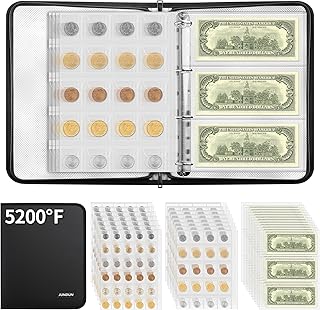Coin collecting is a timeless pursuit, steeped in history and boundless in its appeal. For many, the allure of numismatics—the study and collecting of coins—lies in the rich tapestry of historical narratives and the artistry captured in miniature. Yet beyond the aesthetic and scholarly satisfaction, lies a practical question: Can coin collecting also be profitable, or is it strictly a hobby? This question is intricate and layered, much like the coins themselves, influenced by the types of coins involved, their condition, and the proficiency in buying and selling.
Coin collecting is a timeless pursuit, steeped in history and boundless in its appeal. For many, the allure of numismatics—the study and collecting of coins—lies in the rich tapestry of historical narratives and the artistry captured in miniature. Yet beyond the aesthetic and scholarly satisfaction, lies a practical question: Can coin collecting also be profitable, or is it strictly a hobby? This question is intricate and layered, much like the coins themselves, influenced by the types of coins involved, their condition, and the proficiency in buying and selling.
Historical Investment Successes
The annals of numismatic history are replete with tales of impressive returns on investment. A striking illustration of this is the story of Harold Bareford, who painstakingly acquired a collection of US gold coins for the sum of $13,832 in the 1950s. This savvy investment was met with a windfall in 1978 when his collection garnered a remarkable $1.2 million at auction. Such anecdotes boldly highlight the financial opportunities that exist within the realm of coin collecting.
Knowledge is Key
Profit from coin collecting is not without its prerequisites. Knowledge of rare and valuable coins stands paramount, necessitating diligent study, networking, and the occasional treasure hunt at local markets or sales. Purchasing high-condition coins and selling them when the market is willing to pay a premium is another avenue for profit. Collecting can be, in some ways, likened to a long-term investment. Selecting the right rarities and holding them in anticipation of their appreciation represents yet another strategy, although it carries inherent risks, and not every coin will ensure a handsome return.
Rarity Explained
When delving into rarity, knowing that it is not merely a function of how many coins were minted is crucial. More often, coins originally minted in abundance have grown rare over time due to their loss or destruction. Conversely, some coins were scarce from the outset, such as older proof issues, test strikes, pattern coins, and error coins. Rarity thus reflects a supply-and-demand dynamic, making certain coins not just hard to find but often more costly to procure.
Coin Collecting as a Passionate Pursuit
Despite the profit potential, coin collecting maintains its status as a globally beloved hobby. Its rich canvas includes coins from myriad countries, presenting collectors with a hobby that is as thrilling as it is fulfilling. Aside from amassing precious items, collectors gain insights into history, culture, art, and even geography. Mingling with other enthusiasts at shows, joining clubs, or simply sharing knowledge with fellow collectors add an invaluable social dimension to the hobby.
Investment Decisions: Gold vs Silver
Deciding whether to focus on gold or silver coins for investment purposes is a deeply personal choice. Both are shielded from economic instabilities—a trait that has cemented precious metals as stores of value. Gold coins, typically more expensive due to their intrinsic worth, present challenges in storage and transportation but also promise stability. Silver coins serve as an accessible entry point for novice or budget-conscious collectors, important to industry, and providing portfolio diversification although they are prone to greater market fluctuations.
Hobby and Investment
Does the appeal of coin collecting lie in the pursuit of pleasure or profit? Both paths are valid. An enthusiast will find the greatest joy in assembling a collection that touches on personal interests. Those seeking financial gain, however, would do well to focus on rare pieces likely to appreciate. Balancing one's financial objectives and personal enjoyment requires careful research, expert advice, and the guidance of coin dealers or investment professionals.
In summary, the rich tapestry of coin collecting stretches across the historical, artistic, educational, and financial domains, affording hobbyists and investors alike an enriching venture. To thrive in this endeavor, one needs to cultivate a sound understanding of the factors that influence a coin's worth, remain abreast of market trends, and make informed choices that dovetail with one's economic circumstances and aspirations. While the pursuit may start as a hobby for some and an investment for others, both paths can lead to the gratifying discovery that coin collecting is not only a repository of the past but also a potentially fruitful investment into the future.
Information for this article was gathered from the following source.




